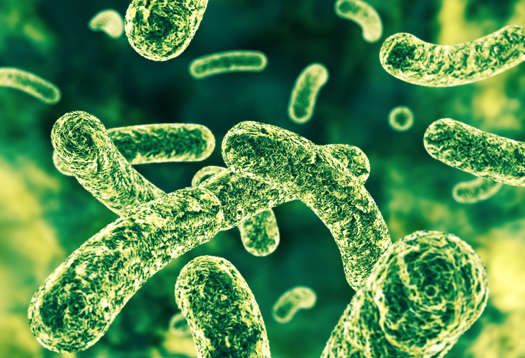The good bacteria living in the gut of humans play essential roles in keeping their hosts safe from food allergies. A recent international study showed that gut microbiota taken from human babies and given to mice protected the recipients from developing allergy to milk.
The results of the animal experiment suggested that probiotic treatments may be able to stop the development of food allergies in humans. Furthermore, they identified the bacteria Anaerostipes caccae as the species responsible for the protection.
An earlier study conducted by The University of Chicago researcher Cathryn Nagler and her colleagues reported that the gut microbiome of healthy human babies do not resemble the gut microbiome of babies with allergy to cow’s milk. They followed up on their finding by looking for a causal relationship between intestinal bacteria and food allergies.
“These findings demonstrate the critical role of the gut microbiota in the development of food allergy and strongly suggest that modulating bacterial communities is relevant to stopping the food allergy disease burden,” explained University of Naples Federico II researcher Roberto Berni Canani, who served as a co-author alongside Nagler. “These data are paving the way for innovative interventions for the prevention and treatment of food allergy that are under evaluation at our centres.” (Related: Natural remedies for allergies.)
Testing the anti-allergenic effects of good gut bacteria on germ-free mice
In their latest experiment, Nagler, Canani, and their colleagues acquired gut bacteria from healthy and cow’s milk-allergic human babies. They transplanted these microbes to germ-free mice raised in a sterile environment. To assist the bacteria in colonizing the gut of the animals, the researchers fed them the sources of nutrients, that is, the same formula as the infants before eventually exposing them to cow’s milk.
Discover how to prevent and reverse heart disease (and other cardio related events) with this free ebook: Written by popular Natural News writer Vicki Batt, this book includes everything you need to know about preventing heart disease, reversing hypertension, and nurturing your cardiac health without medication. Learn More.
When the mice that received gut microbes from allergic infants drank cow’s milk for the first time, they experienced a severe allergic reaction called anaphylaxis. Germ-free mice that did not receive any bacteria and served as controls also had the same reaction.
On the other hand, mice transplanted with gut bacteria from healthy infants did not have any severe reactions to cow’s milk. The researchers noted that the mice appeared to be protected from cow’s milk allergy.
Gut bacteria provide natural protection against allergies caused by cow’s milk
The results of the experiment led Nagler and her colleagues to surmise that gut bacteria regulate allergic responses to food antigens. They believe that therapies involving the modulation of gut bacterial communities offer a potential natural treatment for food allergies.
As part of their follow-up, they analyzed the microbial population in the gut of the mice. They looked for differences in gene expression between the healthy and allergic mice.
They identified Anaerostipes caccae as the species of bacteria responsible for protecting the mice from allergic reactions.
A. caccae belongs to the Clostridia class which are common gut bacteria. In 2014, Nagler and her colleagues found that other members of the Clostridia class offer protection against food allergies by promoting immune responses that stop food allergens from reaching the blood.
“What we see with this work again is how, in the context of all of the different types of microorganisms inhabiting the gastrointestinal tract, one single organism can have such a profound effect on how the host is affected by dietary components,” remarked Dionysios Antonopoulos, who was also a co-author of the study.
“We also get a new appreciation for the distinct roles that each of these members play beyond the generalization that the ‘microbiome’ is involved.”
Sources include:
NutraIngredients
Nature


